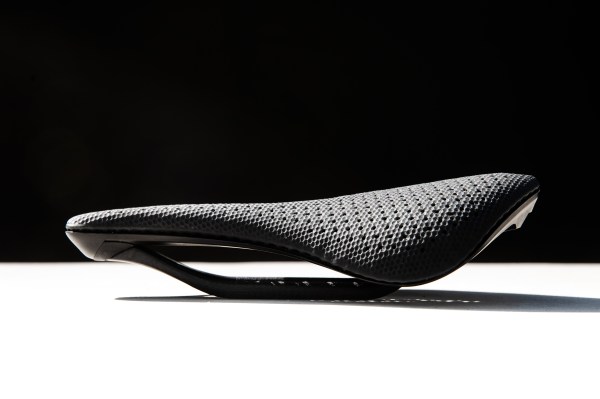Carbon’s next partnership is a 3D-printed bike seat from Specialized - 3 minutes read
 Carbon’s next partnership is a 3D-printed bike seat from Specialized – TechCrunch
Carbon’s next partnership is a 3D-printed bike seat from Specialized – TechCrunchCarbon has been a kind of shining beacon in the world of 3D printing. In June, the company raised $260 million, bringing its valuation just shy of $2.4 billion. The company’s rapid growth is thanks in no small part to some high-profile partnerships, led by big names like Adidas and Riddell.
This morning, Carbon announced another partnership that’s a no-brainer in the wake of those sneaker and helmet deals. The company is teaming up with bicycle manufacturer Specialized for a 3D-printed bike seat.
“Carbon and Specialized share a mission to challenge the acceptable, create the extraordinary, and ultimately make products that enable people to push the limits of what’s possible,” Carbon CEO Joseph DeSimone said in a release tied to the announcement. “Our partnership with Specialized represents not only a breakthrough in bike saddle technology, but also our companies’ shared commitment to drive meaningful change by making products that improve human health and well-being.”
Certainly there’s room for a 3D-printed breakthrough in the world of bike saddles. The issue may be less pressing than what the NFL is currently dealing with on the traumatic brain front, but Carbon makes a pretty compelling argument for how its technology can be put to good use here.
The S-Works Power Saddle utilizes the same lattice-structured Elastomeric Polyurethane as the Adidas FutureCraft sneakers and Riddell SpeedFlex helmet. Per Carbon:
Carbon Digital Light SynthesisTM (DLSTM) technology made it possible to develop a lattice design that enables the saddle to rebound quickly, giving riders the experience of having a ‘suspension’ for their sit bones. The saddle not only disperses pressure, but also significantly improves breathability. Ultimately, our innovation is designed to result in less pain and fewer injuries for riders, leading to better health and performance.
It’s easy to imagine the companies utilizing the technology to create a more bespoke experience, tailored to riders’ bodies. For now, however, they’re focused on more scalable manufacturing, with the seats arriving at some point next year.
Source: TechCrunch
Powered by NewsAPI.org
Keywords:
Carbon • 3D printing • TechCrunch • Carbon • World • 3D printing • Company • Value (ethics) • Adidas • Riddell • The Early Show • Carbon fiber reinforced polymer • Sneakers • Helmet • Bicycle • Manufacturing • 3D printing • Bicycle • Carbon fiber reinforced polymer • Carbon fiber reinforced polymer • Chief executive officer • Joseph DeSimone • Division of labour • Technology • Company • Organizational commitment • Product (business) • Health • Health • 3D printing • National Football League • Brain • Carbon • Technology • Crystal structure • Elastomer • Polyurethane • Adidas • Sneakers • Riddell • Helmet • Crystal structure • Ischial tuberosity • Innovation • Technology • Manufacturing •